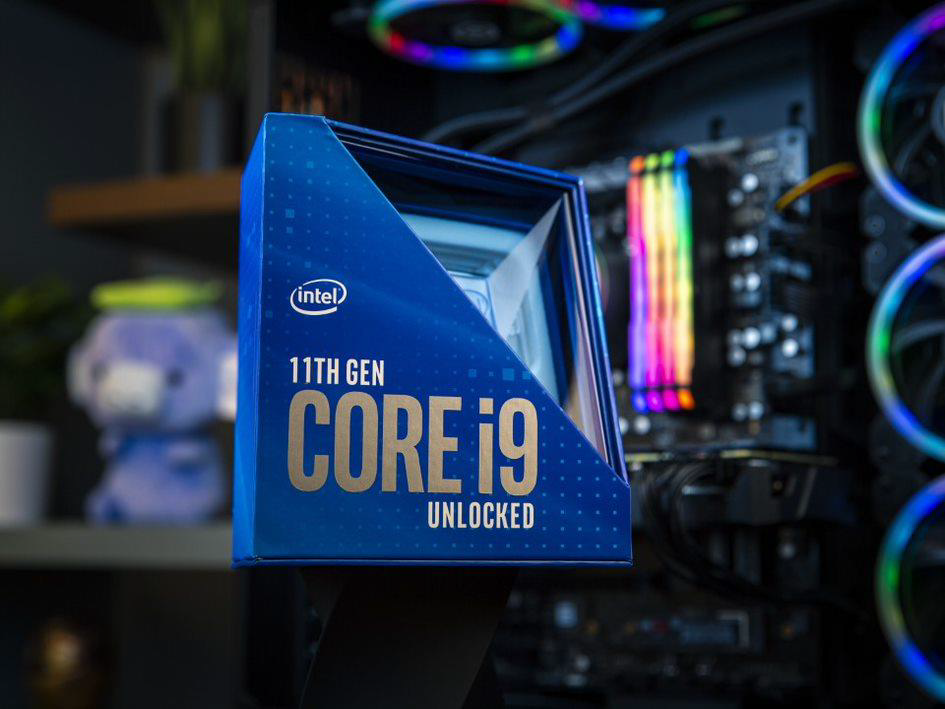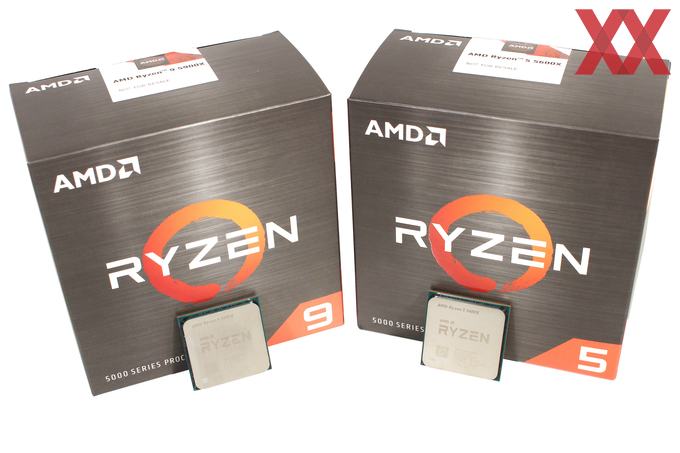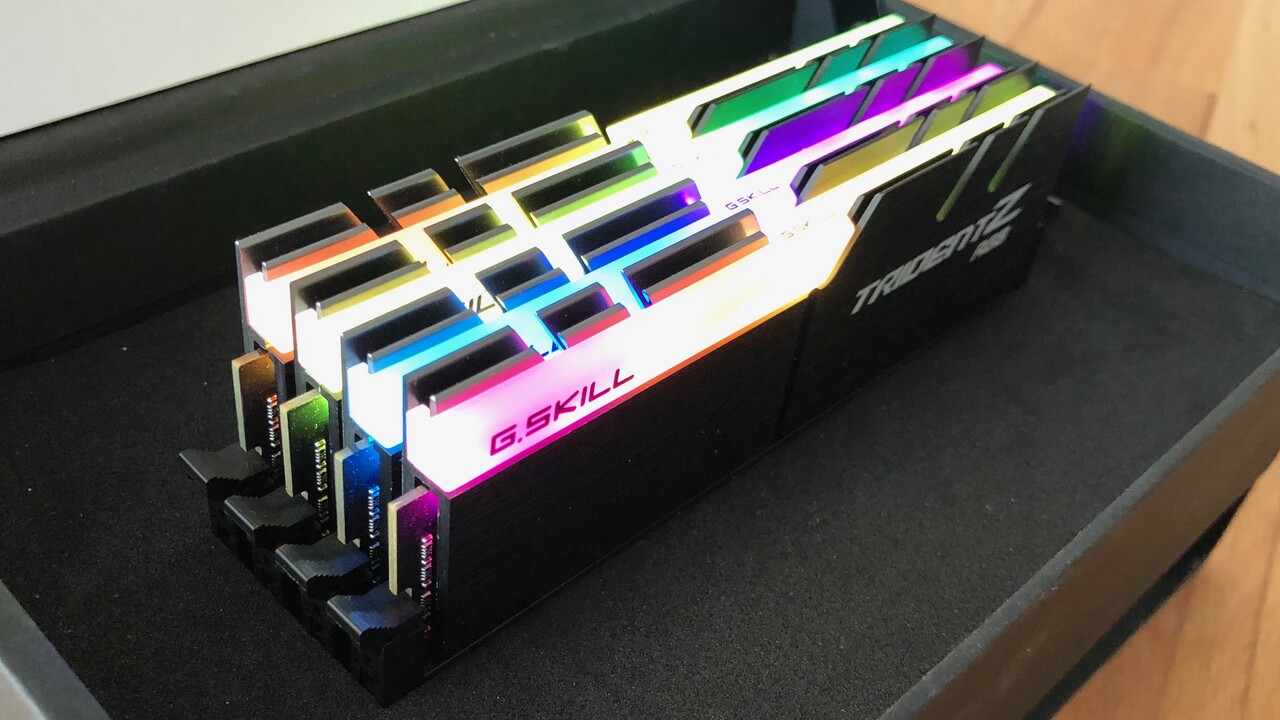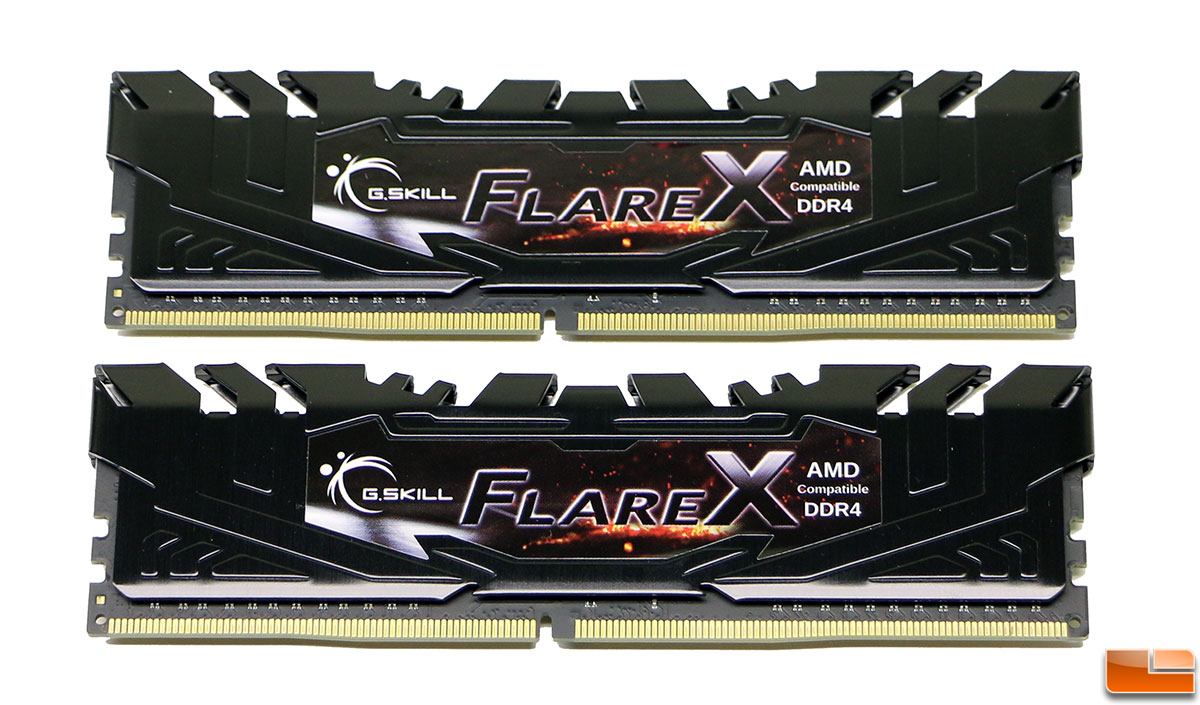Intel itself officially admitted that the part with x86 cores of the Rocketlake chip is exactly the same as Iceland. They didn't want to call the same microarchitecture the same because Rocketlake has a different iGP and CypressCove is 14nm, not 10nm.
Discussion Intel current and future Lakes & Rapids thread
Page 331 - Seeking answers? Join the AnandTech community: where nearly half-a-million members share solutions and discuss the latest tech.
You are using an out of date browser. It may not display this or other websites correctly.
You should upgrade or use an alternative browser.
You should upgrade or use an alternative browser.
Hardest part to do is critical path optimization and wire delay - if they design their uarch to given process backporting it to older process means that structures will become bigger and too slow to meet timing targets - it will work but only at much lower frequencies that it was designed originally.
You're basically just saying that difference processes have different performance characteristics, which is true to an extent, but does not justify repipelining or any other dramatic change. Again, it's the same with a shrink. You don't redesign for the new process; you just pocket the gains as they come.
Besides, looking at Ice Lake, 10+ doesn't seem to have any performance advantage vs 14+++ to begin with.
You're basically just saying that difference processes have different performance characteristics, which is true to an extent, but does not justify repipelining or any other dramatic change. Again, it's the same with a shrink. You don't redesign for the new process; you just pocket the gains as they come.
Besides, looking at Ice Lake, 10+ doesn't seem to have any performance advantage vs 14+++ to begin with.
Intel has used year tick-tock cadence. Which is, at first they shrink their previous design and then they do redesign which makes use of new processes's increased transistor density. For 10nm that shrink was CannonLake, redesigned uarch for 10nm was named as Sunny Cove. As what I think would be possible to backport to 14nm would be CannonLake, so they have AVX512 and few percent IPC improvement + Sunny Cove cache system, 48KB L1D + 512KB L2 which gives probably 5-10% of performance on top of Cannonlake.
But as there's some 5+ years between Skylake and Rocketlake there might be some other design changes too but SunnyCove which makes use of 10nm density with greatly increased OOO-structures and register files - I found it improbable that Intel could just reuse that design to 14nm. Or take it other way - if they could do that they haven't really exposed 10nm possibilities yet - even nowadays Intel should not be that far away with their designs.
I can't tell if you're serious. Except for Anandtech, all important review outlets tested gaming performance using the same memory kits, with the same memory clocks.
You are dead wrong on this, even if they may have used the same RAM kit they loaded the default RAM speed for the CPUs. Check big pages like Computerbase, you should know this! A few have used OC RAM speeds for Intel but the majority didn't, they tested according to spec. Because of the same RAM speed with RKL-S Intel should look better out of the box in games regardless of the IPC improvements.
Thunder 57
Diamond Member
- Aug 19, 2007
- 4,304
- 7,114
- 136
You are dead wrong on this, even if they may have used the same RAM kit they loaded the default RAM speed for the CPUs. Check big pages like Computerbase, you should know this! A few have used OC RAM speeds for Intel but the majority didn't, they tested according to spec. Because of the same RAM speed with RKL-S Intel should look better out of the box in games regardless of the IPC improvements.
Well maybe Intel should get off their asses and stop limiting Core to DDR4 2666/2933. It seems all their chips can run with much faster memory, so why not at least make it 3200?
There's a reason that I, for example, talked about media outlets whose gaming benchmarks can be taken seriously by enthusiasts. AMD (and Zen 3) doesn't seem to have this magic problem mikk's talking about, even though they're all testing CPUs with equal RAM settings, most of them are even fast and tight. Tom's, TPU, not to mention AT... You just don't go to these places other than out of curiosity once you already know things stand.Not strictly true, Tom's uses 2933 for stock config on intel, at least during the 5600X review
The sites that used same speed RAM also tended to get different results from sites like AT that used the chipsets certified JEDEC settings. The win for Zen 3 *mostly* still there, but it is a lot less clear cut, and in some cases Intel wins.
TPU used exactly the same DDR4-3200 RAM settings, using what is a Zen 2 friendly FlareX CL14 kit, and got raked over the coals for it by the AMD crowd when it showed Comet Lake winning in the aggregate with a 2080 Ti.
One has to wonder what would have happened if someone used an Intel friendly RAM kit, stuck that into a Zen 3, and then ran those benchmarks.
Tom's test setup, using 2933 on Intel, 3200 on Zen for stock :
View attachment 36001
Computerbase.de also uses MFR rated RAM speeds :
View attachment 36004
coercitiv
Diamond Member
- Jan 24, 2014
- 7,519
- 17,990
- 136
Nobody outside Anandtech tested according to spec, Computerbase has some arguably strange methodology in which they comply with validated frequency but use XMP timings anyway. That's still overclocking, that memory kit is likely still running on 1.35VYou are dead wrong on this, even if they may have used the same RAM kit they loaded the default RAM speed for the CPUs. Check big pages like Computerbase, you should know this! A few have used OC RAM speeds for Intel but the majority didn't, they tested according to spec.
Just so we're clear what spec means:
- 2933Mhz CL 19
- 3200Mhz CL 20
shady28
Platinum Member
- Apr 11, 2004
- 2,520
- 397
- 126
Nobody outside Anandtech tested according to spec, Computerbase has some arguably strange methodology in which they comply with validated frequency but use XMP timings anyway. That's still overclocking, that memory kit is likely still running on 1.35V
Just so we're clear what spec means:
- 2933Mhz CL 19
- 3200Mhz CL 20
It's true only AT used full JEDEC spec RAM speed *and* timings. This is relevant to anyone buying an OEM rig from the big 7 (Dell, HP, Lenovo, Asus, HP, Acer, Toshiba, and Apple), which is to say 85% of the PC Market. It's very valid in that respect, but I think most of AT readers neither buy OEM nor do they comprehend that is what they are looking at when AT does reviews.
Edit: I should throw in, no question at JEDEC Zen 3 wins. So if you want an off the shelf rigt Zen 3 from one of those major OEMs is the best way to go. However, not one of them carries Zen 3. See paper launch threads.
TPU uses a very very very common DDR4-3200 CL14 enthusiast setting. I think that is very relevant and very common for the audience, which is almost entirely DIY builders.
Many other sites are using bastardized RAM configurations, with bizarre logic \ justifications for their completely otherworldly setup. Tom's in particular with its 2933 / CL 14 is garbage. Computerbase.de does the same thing on their standard reviews. Virtually no one uses these kinds of settings, neither OEM nor DIY.
tamz_msc
Diamond Member
- Jan 5, 2017
- 3,865
- 3,730
- 136
This is a new leak of a 11900 non-K ES, showing CPU-Z benchmark scores.

 wccftech.com
The CPU has a 1.8/4.4 GHz Base/Boost clock-speed and the IPC boost in this particular benchmark is roughly ~20%.
wccftech.com
The CPU has a 1.8/4.4 GHz Base/Boost clock-speed and the IPC boost in this particular benchmark is roughly ~20%.

Intel Core i9-11900 8 Core Rocket Lake Desktop CPU Benchmarks Leak Out, Early ES Chip With 1.8 GHz Clocks Tested on Z490 Platform
Intel's Core i9-11900 8 Core Rocket Lake Desktop CPU benchmarks have leaked out, showing some impressive IPC gains for the 11th Gen family.
Well maybe Intel should get off their asses and stop limiting Core to DDR4 2666/2933. It seems all their chips can run with much faster memory, so why not at least make it 3200?
RKL-S will support DDR3-3200, this is the point in this discussion. Intel is traditionally conservative with RAM speeds anyways.
Nobody outside Anandtech tested according to spec, Computerbase has some arguably strange methodology in which they comply with validated frequency but use XMP timings anyway. That's still overclocking, that memory kit is likely still running on 1.35V
Just so we're clear what spec means:
- 2933Mhz CL 19
- 3200Mhz CL 20
You are just wrong. Basically every major German hardware site tested according to spec. Check out hardwareluxx, Computerbase, golem, PCGH and more. One example here:

Die Test-Hardware - Seite 5 - Hardwareluxx
Hardwareluxx hat den AMD Ryzen 9 5900X und Ryzen 5 5600X pünktlich zum NDA-Fall ausführlich getestet.
Yes they did use a DDR4-3600 kit for all but tested with RAM speeds according to spec as you can see. Tomshardware tested with default RAM speeds as well. Several of the major english hardware sites did the same like bit-tech, hexus, hothardware. Here another example from these: https://hexus.net/tech/reviews/cpu/146440-amd-ryzen-9-5950x-ryzen-9-5900x/?page=2
Here again, they did use DDR4-3200 kit for all but did use RAM speeds according to spec. It's not only anandtech and should know it better.
shady28
Platinum Member
- Apr 11, 2004
- 2,520
- 397
- 126
RKL-S will support DDR3-3200, this is the point in this discussion. Intel is traditionally conservative with RAM speeds anyways.
You are just wrong. Basically every major German hardware site tested according to spec. Check out hardwareluxx, Computerbase, golem, PCGH and more. One example here:

Die Test-Hardware - Seite 5 - Hardwareluxx
Hardwareluxx hat den AMD Ryzen 9 5900X und Ryzen 5 5600X pünktlich zum NDA-Fall ausführlich getestet.www.hardwareluxx.de
Yes they did use a DDR4-3600 kit for all but tested with RAM speeds according to spec as you can see. Tomshardware tested with default RAM speeds as well. Several of the major english hardware sites did the same like bit-tech, hexus, hothardware. Here another example from these: https://hexus.net/tech/reviews/cpu/146440-amd-ryzen-9-5950x-ryzen-9-5900x/?page=2
Here again, they did use DDR4-3200 kit for all but did use RAM speeds according to spec. It's not only anandtech and should know it better.
What's really telling here is how well the 10850K and 10900K did even with gimp RAM. One has to wonder why they have 5950X at the top when the 10900K ties ie on max fps and has better average fps, even with 2933 RAM vs 3200 RAM :

You're arguing about nothing, God knows why. The magical problem you suggested doesn't exist, according to reviewers who tested the CPUs with RAM at equal speeds and settings.RKL-S will support DDR3-3200, this is the point in this discussion. Intel is traditionally conservative with RAM speeds anyways.
You are just wrong. Basically every major German hardware site tested according to spec. Check out hardwareluxx, Computerbase, golem, PCGH and more. One example here:

Die Test-Hardware - Seite 5 - Hardwareluxx
Hardwareluxx hat den AMD Ryzen 9 5900X und Ryzen 5 5600X pünktlich zum NDA-Fall ausführlich getestet.www.hardwareluxx.de
Yes they did use a DDR4-3600 kit for all but tested with RAM speeds according to spec as you can see. Tomshardware tested with default RAM speeds as well. Several of the major english hardware sites did the same like bit-tech, hexus, hothardware. Here another example from these: https://hexus.net/tech/reviews/cpu/146440-amd-ryzen-9-5950x-ryzen-9-5900x/?page=2
Here again, they did use DDR4-3200 kit for all but did use RAM speeds according to spec. It's not only anandtech and should know it better.
And this here is the same fallacy as in the Zen 3 review topics. You can't pick a single game where AMD was WAAAAAY behind Intel before Zen 3, and then go on to say 'wow, this is so telling'. It's not. Not just that, but your example (SotTR) also has nothing to do with the RAM speeds at all.What's really telling here is how well the 10850K and 10900K did even with gimp RAM. One has to wonder why they have 5950X at the top when the 10900K ties ie on max fps and has better average fps, even with 2933 RAM vs 3200 RAM :
View attachment 36049
coercitiv
Diamond Member
- Jan 24, 2014
- 7,519
- 17,990
- 136
3200Mhz CL14 RAM on both platforms, look at all that un-gimped RAM in anecdotal examples

This benign memory controversy keeps rehashing over and over with no worthwhile conclusion that it actually influences final results. Next cue up someone claiming CML scales better than Ryzen 5000 with overclocked memory so we can go again through all the reviews like we haven't already done this down to the tiniest detail. Heck, all we need for a complete circus is one AMD fanboy to come in with the "dual ranking scales better on Zen 3" story. This way we can completely trash this thread... AGAIN.
We have plenty of reviews with 3200 CL14 or better RAM speeds on both platforms, and we also have plenty of reviews with overclocked 10900K & memory so we can understand where the upper ceiling is for SKL based CPUs. Rocket Lake increasing max stock RAM speed is a good thing only for gamers buying non-Z boards. The rest still look at overclocked gaming result to gauge the potential of their RKL build.
You'll want overclocked RKL results to claim that comfortable victory in gaming. You'll want overclocked memory, highest MT multiplier, maybe even unlocked TDP as well. And that's when someone will come in and say NO... we want real CPU comparisons, with stock settings!

This benign memory controversy keeps rehashing over and over with no worthwhile conclusion that it actually influences final results. Next cue up someone claiming CML scales better than Ryzen 5000 with overclocked memory so we can go again through all the reviews like we haven't already done this down to the tiniest detail. Heck, all we need for a complete circus is one AMD fanboy to come in with the "dual ranking scales better on Zen 3" story. This way we can completely trash this thread... AGAIN.
We have plenty of reviews with 3200 CL14 or better RAM speeds on both platforms, and we also have plenty of reviews with overclocked 10900K & memory so we can understand where the upper ceiling is for SKL based CPUs. Rocket Lake increasing max stock RAM speed is a good thing only for gamers buying non-Z boards. The rest still look at overclocked gaming result to gauge the potential of their RKL build.
You'll want overclocked RKL results to claim that comfortable victory in gaming. You'll want overclocked memory, highest MT multiplier, maybe even unlocked TDP as well. And that's when someone will come in and say NO... we want real CPU comparisons, with stock settings!
3200Mhz CL14 RAM on both platforms, look at all that un-gimped RAM in anecdotal examples
And look how close CML-S and Ryzen 5000 were performing in your example. So what is your problem now? You were claiming that "Except for Anandtech, all important review outlets tested gaming performance using the same memory kits, with the same memory clocks" And once again, your were dead wrong on this as you can see. Don't you get it?
You'll want overclocked RKL results to claim that comfortable victory in gaming. You'll want overclocked memory, highest MT multiplier, maybe even unlocked TDP as well.
You turned into a troll, I never said something like this, what a bunch of nonsense. I didn't even say they all should have tested CML-S with DDR4-3200. If you have nothing left you should better shut up.
uzzi38
Platinum Member
- Oct 16, 2019
- 2,747
- 6,657
- 146
What is with the individuals in this thread and ignoring GN's results which were done at 1080p and with equal memory kits for both Intel and AMD and yet they were some of the most positive results for Zen 3?
shady28
Platinum Member
- Apr 11, 2004
- 2,520
- 397
- 126
You'll want overclocked RKL results to claim that comfortable victory in gaming. You'll want overclocked memory, highest MT multiplier, maybe even unlocked TDP as well. And that's when someone will come in and say NO... we want real CPU comparisons, with stock settings!
As you wish.
Look at that 9900K roar!

Core i9-9900K vs. Ryzen 9 3900X mit RAM-OC in Spielen
Wie hoch ist die Spieleleistung wirklich? Core i9-9900K und Ryzen 9 3900X treten mit übertakteten Samsung-B-Dies im CPU-Limit in Spielen an.
coercitiv
Diamond Member
- Jan 24, 2014
- 7,519
- 17,990
- 136
There's no problem mate, that's just it! I'm not invested in the winner. I don't need to conceptualize "AMD friendly memory" in order justify a benchmark win (like some other poster who is not you), and I certainly don't feel the need for AMD products to win against CML running 2666 or 2933Mhz memory.And look how close CML-S and Ryzen 5000 were performing in your example. So what is your problem now?
My point was this type of "real CPU benchmark" is close at hand. We have plenty of reviewers using same memory speed on both platforms or alternatively benchmarking overclocked CPU along stock configurations.
Did I quote you? Did I mention you?You turned into a troll, I never said something like this, what a bunch of nonsense.
Last time you lost your temper on me was when I expressed my opinion that Tiger Lake would show little if any IPC increase over Ice Lake. History showed your outburst was completely unwarranted.If you have nothing left you should better shut up.
I'm growing tired of presumably smart people who confuse skepticism with bias and/or trolling. I intervened on this RAM speed theory because I found it an unnecessary distraction, part of the cyclical myths that spawn on either side of the fence when benchmarks aren't satisfactory. I've seen this with the original Skylake launch, original Zen launch, Zen 2 launch, and it almost got a new boost during Zen 3 launch with the dual rank theory. Always hidden performance, always concealed by ignorant reviewers, always ignoring the full story.
But hey, you want an echo chamber? You got it. It's been a pleasure interacting with you these years.
shady28
Platinum Member
- Apr 11, 2004
- 2,520
- 397
- 126
There's no problem mate, that's just it! I'm not invested in the winner. I don't need to conceptualize "AMD friendly memory" in order justify a benchmark win (like some other poster who is not you), and I certainly don't feel the need for AMD products to win against CML running 2666 or 2933Mhz memory.
I'll just leave you with these since it didn't sink in last time. There's this thing called an SPD, and a variation called XMP, and another variation called A-XMP.
This RAM is tuned for AMD. That hasn't seemed to sink into your thick one yet. The chips don't care but if that's the extent of your knowledge you probably shouldn't be talking. There's a lot more to it.
So here :

G skill Flare x 3200 cl 14 on intel...
Hi i was wondering has anyone tested/ knows any links or anyone who has tested the G.SKILL Flare X Series 16GB (2 x 8GB) 3200 CL 14, on Intel Motherboard? I got a cracking bargain on Black friday, but im just not sure if its stable or will work...

G.SKILL Flare X Series 16GB DDR4 3200MHz AMD Memory Kit Review - Legit Reviews
Picking out the right DDR4 dual-channel memory kit for an AMD Ryzen processor can be a daunting task as there are hundreds of kits on the market to pick from and not all work well with AMD's latest AM4 platform. The good news is G.Skill has come out with the Flare X and FORTIS DDR4 memory series...

Best DDR4 RAM for Ryzen 7 2700X Builds in 2020 - PremiumBuilds
We show you the best DDR4 memory kits and memory speeds for Ryzen 7 2700X builds using the X470/B450 chipset, maximising performance of your Zen 2 build.
I'll just leave you with these since it didn't sink in last time. There's this thing called an SPD, and a variation called XMP, and another variation called A-XMP.
This RAM is tuned for AMD. That hasn't seemed to sink into your thick one yet. The chips don't care but if that's the extent of your knowledge you probably shouldn't be talking. There's a lot more to it.
So here :

G skill Flare x 3200 cl 14 on intel...
Hi i was wondering has anyone tested/ knows any links or anyone who has tested the G.SKILL Flare X Series 16GB (2 x 8GB) 3200 CL 14, on Intel Motherboard? I got a cracking bargain on Black friday, but im just not sure if its stable or will work...www.overclock.net
View attachment 36083

G.SKILL Flare X Series 16GB DDR4 3200MHz AMD Memory Kit Review - Legit Reviews
Picking out the right DDR4 dual-channel memory kit for an AMD Ryzen processor can be a daunting task as there are hundreds of kits on the market to pick from and not all work well with AMD's latest AM4 platform. The good news is G.Skill has come out with the Flare X and FORTIS DDR4 memory series...www.legitreviews.com
View attachment 36084
View attachment 36085

Best DDR4 RAM for Ryzen 7 2700X Builds in 2020 - PremiumBuilds
We show you the best DDR4 memory kits and memory speeds for Ryzen 7 2700X builds using the X470/B450 chipset, maximising performance of your Zen 2 build.premiumbuilds.com
View attachment 36086
You found a bunch of quotes that do little more than parrot that they slapped AMD's name on the box. Which translating from marketing speak, just means they bothered to test the sticks with AMD platforms to be sure that behave well.
Either give an actual reason for the RAM to behave differently than any other standard DDR4-3200 kit, or drop the topic.
shady28
Platinum Member
- Apr 11, 2004
- 2,520
- 397
- 126
You found a bunch of quotes that do little more than parrot that they slapped AMD's name on the box. Which translating from marketing speak, just means they bothered to test the sticks with AMD platforms to be sure that behave well.
Either give an actual reason for the RAM to behave differently than any other standard DDR4-3200 kit, or drop the topic.
I already did that twice now. If tuning sub-timings for a platform wasn't a thing, then the AMD Ryzen memory calculator would not be a thing. If you have never tweaked a memory sub-timing and don't know what I'm talking about, then drop it.
DrMrLordX
Lifer
- Apr 27, 2000
- 23,235
- 13,325
- 136
Beside some changes to make it work on 14 nm I too don't think there's any architectural difference between Sunny and Cypress Cove cores.
It is precisely the changes needed to make Cypress Cove work on 14nm that may produce differences. Also bear in mind that Cypress Cove may be closer to Willow Cove albeit with Sunny Cove's inclusive cache hierarchy.
The CPU-z scores posted by @tamz_msc do show that, at least in one benchmark, Rocket Lake-S might do alright. Those scores are closer to the ~18% gains moving from Skylake to Sunny Cove.
Wow, maybe it will be more than the 10% some in this forum were predicting as the intel described "double digit" IPC gains.It is precisely the changes needed to make Cypress Cove work on 14nm that may produce differences. Also bear in mind that Cypress Cove may be closer to Willow Cove albeit with Sunny Cove's inclusive cache hierarchy.
The CPU-z scores posted by @tamz_msc do show that, at least in one benchmark, Rocket Lake-S might do alright. Those scores are closer to the ~18% gains moving from Skylake to Sunny Cove.
I'll just leave you with these since it didn't sink in last time. There's this thing called an SPD, and a variation called XMP, and another variation called A-XMP.
This RAM is tuned for AMD. That hasn't seemed to sink into your thick one yet. The chips don't care but if that's the extent of your knowledge you probably shouldn't be talking. There's a lot more to it.
So here :

G skill Flare x 3200 cl 14 on intel...
Hi i was wondering has anyone tested/ knows any links or anyone who has tested the G.SKILL Flare X Series 16GB (2 x 8GB) 3200 CL 14, on Intel Motherboard? I got a cracking bargain on Black friday, but im just not sure if its stable or will work...www.overclock.net
View attachment 36083

G.SKILL Flare X Series 16GB DDR4 3200MHz AMD Memory Kit Review - Legit Reviews
Picking out the right DDR4 dual-channel memory kit for an AMD Ryzen processor can be a daunting task as there are hundreds of kits on the market to pick from and not all work well with AMD's latest AM4 platform. The good news is G.Skill has come out with the Flare X and FORTIS DDR4 memory series...www.legitreviews.com
View attachment 36084
View attachment 36085

Best DDR4 RAM for Ryzen 7 2700X Builds in 2020 - PremiumBuilds
We show you the best DDR4 memory kits and memory speeds for Ryzen 7 2700X builds using the X470/B450 chipset, maximising performance of your Zen 2 build.premiumbuilds.com
View attachment 36086
Uhhh, I don't think you understand what's going on. XMP cannot be tuned for AMD CPUs by definition. XMP is an Intel program. A-XMP isn't a thing. It was a very short lived attempt by MSI to translate XMP timings to Zen 1 CPUs but it didn't really work. I do think that underneath the hood at some point the AMD AGESA started calculating compatible timings from XMP preset timings, but that is not something set by the RAM provider.
The program that used to exist for AMD CPUs was called AMP, but AMD hasn't extended it to Zen CPUs. So if you are using XMP timings, you are using Intel optimized timings. The marketing for AMD or Ryzen memory is for compatibility reasons, trying to make sure the timings used will work without any issues on Ryzen CPUs. If you want to see what Intel can do with higher memory frequency and hand tuned RAM timings against AMD, GN did this already. You can watch it and judge for yourself.
An updated Rocket Lake eng. sample 8-core, 4.1 GHz all-core, 4.5 GHz single-core with improved scores:
TRENDING THREADS
-
Discussion Zen 5 Speculation (EPYC Turin and Strix Point/Granite Ridge - Ryzen 9000)
- Started by DisEnchantment
- Replies: 25K
-
Discussion Intel Meteor, Arrow, Lunar & Panther Lakes + WCL Discussion Threads
- Started by Tigerick
- Replies: 24K
-
Discussion Intel current and future Lakes & Rapids thread
- Started by TheF34RChannel
- Replies: 23K
-
-

AnandTech is part of Future plc, an international media group and leading digital publisher. Visit our corporate site.
© Future Publishing Limited Quay House, The Ambury, Bath BA1 1UA. All rights reserved. England and Wales company registration number 2008885.

